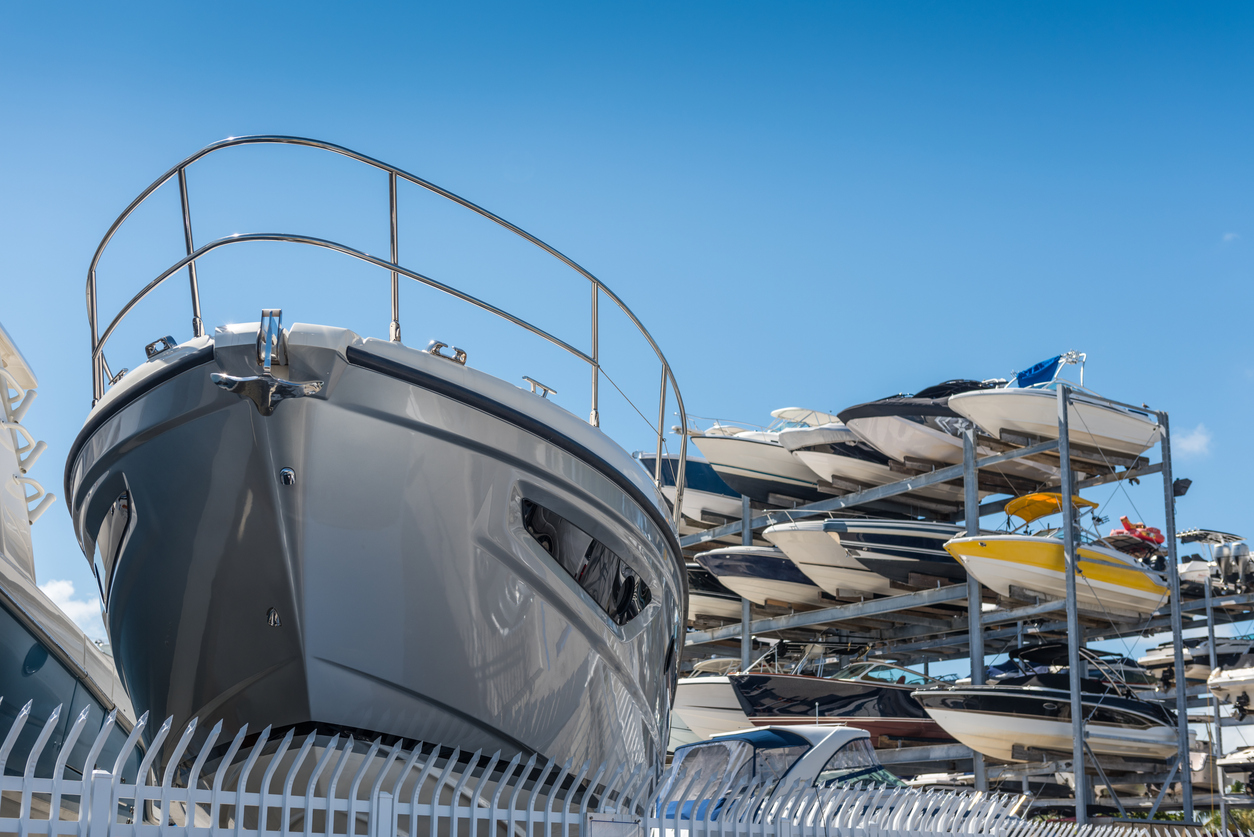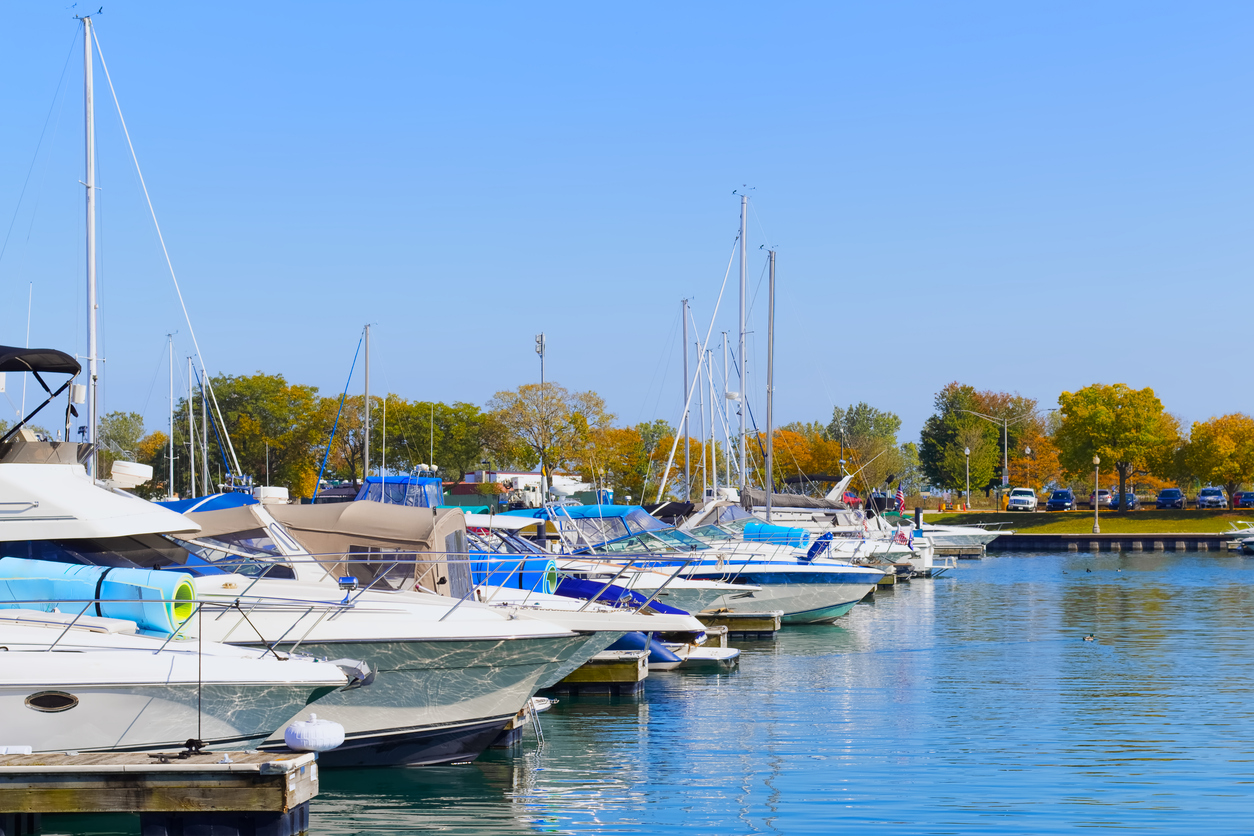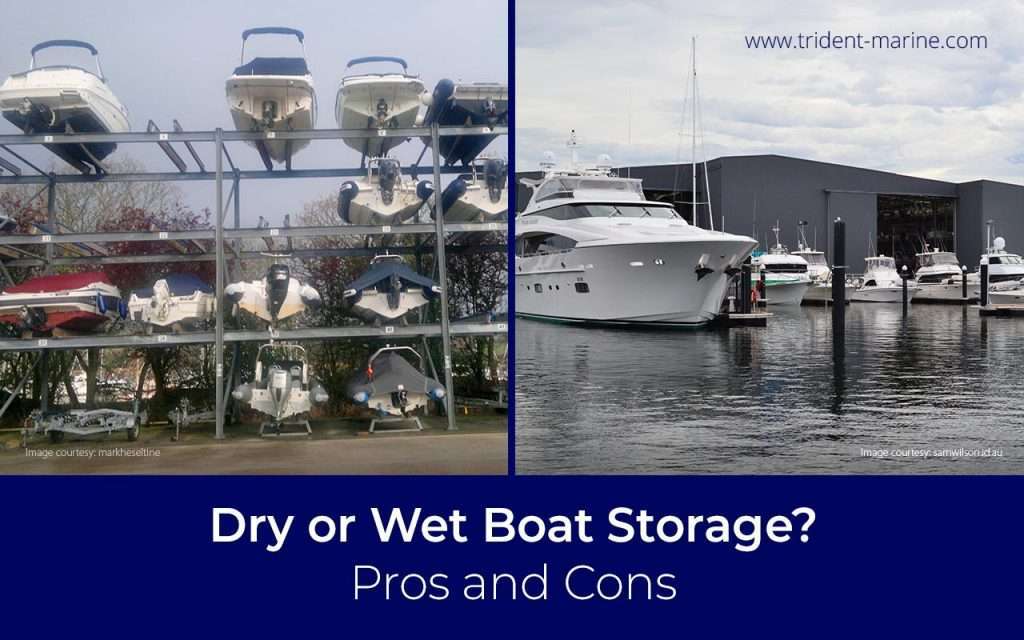Purchasing a boat is a significant investment, which means that having a safe and convenient storage plan is a must when it comes to making sure that you will be able to get as much enjoyment out of it as possible for decades. Most boat owners choose between dry storage for boats, where vessels are stored indoors on an elevated rack, and wet storage, where boats are parked in semienclosed water along a pier or in a similar setting. Consider the pros and cons of each boat storage option when deciding which storage space best suits your needs. Additionally, learn why Trident Marine Group is a top choice for boat storage near Glen Burnie!
Pros of Dry Storage for Boat

Dry boat storage is generally an ideal option for casual boaters who emphasize storage and do not necessarily rely on having frequent access to their boats. Here are some of the main benefits of choosing this option:
Better Protection for Your Boat
Boats may be designed to be capable of being stored in the water, but this does not necessarily mean that continuous exposure to water is not capable of damaging your boat. Saltwater, microorganisms, chemical traces, and other potential contaminants may lead to flaking paint, rusted metal, and other minor issues over time, and keeping your boat out of the water when it is not being used can help to reduce the overall wear and tear that it is exposed to. Many dry storage options also allow you to store your boat under a partially or completely enclosed roof, which can provide a much higher level of protection from the elements.
Lower Cost
While specific boat storage fees can vary significantly from facility to facility, dry storage tends to come with lower monthly or annual storage fees than wet storage. Dry storage is ideal if you’re on a limited budget or want to save money for new accessories or other aspects of your boating experience.
Cons of Dry Storage for Boat
While dry storage can work well for many casual boaters, this option has several disadvantages to be aware of before making a decision. Here are some of the most common drawbacks of dry boat storage to consider when deciding whether this option is likely to be a good fit for you:
Must Inform Marina Staff in Advance
Most dry boat storage facilities require boat owners to inform them of their plans to use their boat in advance so that they can fit moving it to and from the water into their schedule rather than allowing you to do it yourself. Many dry facilities will allow you to transport your boat if you have the proper equipment and are taking it a significant distance, but very few will let you take it off the rack for liability reasons. Some facilities are happy to bring your boat to a nearby lake for your convenience, but even this can reduce your options for planning impulsive boat trips.
Extra Cost of Docking and Undocking
Many dry boat storage facilities charge fees every time a staff member needs to dock and undock your boat, which can add up over time if you use your boat frequently. While these fees may not be a dealbreaker for occasional boaters, they may be important for boat owners who enjoy planning frequent day trips around the Glen Burnie area.
Pros of Wet Storage for Boat

Wet boat storage tends to work well for frequent boaters who prioritize having reliable and convenient access to their boats. Here are some of the most significant benefits of this option:
Easier to Access Your Boat When You Want It
Choosing wet storage means that frequent boaters have significantly more flexibility to simply drive to the marina, start their boat, and head to their favorite destination without having to wait for a staff member to move it off of and onto a rack. This means that planning weekend boat trips on Friday or leaving or returning during especially busy times can be significantly more convenient.
Fewer Hidden Fees
By handling your boat yourself every time you use it, you avoid relying on staff for assistance. This can help you cut down on one of the most common extra costs often linked to many dry storage options. Choosing a wet storage facility offers this advantage.
Cons of Wet Storage for Boat
Wet boat storage also has several disadvantages that make it a less appealing option for occasional boaters. Here are some of the most important considerations to make before deciding on wet storage:
Less Protection
Storing your boat in the water can increase its exposure to the elements and the overall amount of wear and tear it experiences, which can increase the number of repairs you need to make and even reduce the lifespan of your boat.
Higher Cost
Wet storage often costs somewhat more than dry storage, largely as a tradeoff for this option’s higher level of convenience. While cost is not always a factor among boat owners who prioritize securing the best storage space possible, it can be a good idea to carefully consider whether paying more for a similar type of service is worthwhile.
Choose Trident Marine Group for Safe and Reliable Storage for Boat

When deciding between dry and wet storage options for your boat, weigh your specific needs, budget, and desired convenience. Consider the pros and cons of each option in relation to your boating lifestyle and future goals. An informed choice will help you keep your boat secure and well-maintained, ultimately enhancing your boating experience for years.
At Trident Marine Group, we know that purchasing a boat is an exciting and often costly investment. We help potential customers carefully evaluate what they need in a boat storage facility to best protect their new favorite outdoor recreational equipment for years to come. Contact us today to learn more about the benefits of choosing us or to start the process of selecting the best place to park your new boat!

